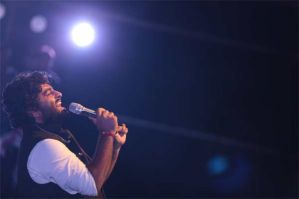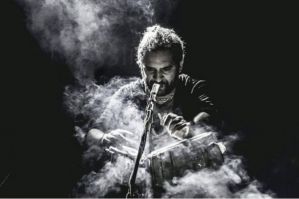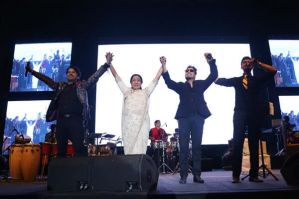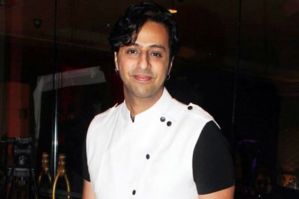Anoushka Shankar - "It's confusing when you feel that you have done a bad job and the listeners walk up to you and say, 'Great show'"

Known for her distinct musical sense, Anoushka Shankar is a sitar player who is contemporary yet traditional and rooted in many ways. She has collaborated with artistes like Jethro Tull, Sting, Karsh Kale and sister Norah Jones in the past, but never had a band or an ensemble of her own. However, since the last two years, Anoushka Shankar has been giving voice to her experimental inclinations through her ensemble 'The Anoushka Shankar Project'. After having sold out concerts in Australia and New Zealand, the band is now on a five city tour in India.
Besides touring, the woman with the magical fingers has many things to look forward to in the coming year – working with artistes like Herbie Hancock, Lennny Kravitz and Nitin Sawhney. As the band readies to hit the road, Anoushka Shankar speaks to Radioandmusic.com's Chirag Sutar about her music, her upcoming projects, her thoughts on the changing sound of the sitar, the Grammies and much more … read on!
What was the purpose of starting the Anoushka Shankar Project?
I realised that people would come for the sitar concert expecting it to be a purely classical concert, but they would be disappointed with electronics and the bass or the vocals. On the other hand, some would hear about my fusion ensemble, buy a ticket and then would be disappointed with the classical concert (laughs), so I realised I needed to just separate the things that I do and that is the reason why I created the 'Anoushka Shankar Project'.
Anything that I do under the name of 'The Anoushka Shankar' project is more of experimental, composition based, ensemble music. And under Anoushka Shankar, I am doing pure classical concerts… that is one of the reasons why I created this distinction - And now I am finally bringing this to India after two years
Two years… why did it take so long to get the band to India?
I had started touring abroad earlier, and then this year I thought … wait … why I haven't played in India? Because it just so happened that last two winters I was booked to do classical shows here and it doesn't make sense to fly all the musicians for just one show – It has to be a tour. So this year, we planned a little better and thought, let's do a five city tour
You said, you'll be playing experimental music under ASP. What are the genres you are experimenting with?
Naturally, we draw influences from Indian classical music. Almost all the pieces we play are based on ragas, but they are interpreted sometimes in a very different way. So, you hear snatches of jazz, flamenco, little bit of western classical flavour and some more mainstream subtle influences. But over all, I'll say it's Indian, Jazz and Flamenco
Indian, Jazz and Flamenco – that's a wide spectrum!
(Laughs) That's the nice thing about something like the 'project' – it keeps on changing every year. I try and switch the line-up a little bit, this is the band right now, and we have been touring like this for the last year, so let's see.
Your band line-up is quite different from others… like, you are using a cellist and not a bassist.
It's drawn from an acoustic space very much, there are many who are doing a brilliant job working with the bass guitars, and keyboards. But I am trying to use classical instruments which have so much beauty, and you don't hear them that often in these contexts. For example, the sitar with a cello or a piano – I really think it has got a lot of scope
Would you be doing 'song writing' too?
This particular tour is instrumental, I have worked with vocalists to represent certain albums like Breathing Under Water, but I am an instrumentalist by nature, my attraction is more towards melody than to song, so this particular tour is all instrumental.
Are you planning to put out an album with the present band?
These guys have worked on my albums before, we are planning to bring out an album soon, but as of now, there is no ASP album …but we do play stuff from my previous albums
Would Pt. Ravi Shankar be also joining you on the tour?
Not on this tour, but we just played together in Kolkata last weekend, we are doing Delhi at the end of this month and hoping to come to Mumbai early March. I do all of his concerts, whenever he performs...
You have been featuring and collaborating with varied artistes… tell me more about that…
In the last few months, I have worked with Lenny Kravitz, Nitin Sahwney (of course, he is a wonderful musician) and looks like I might be on Herbie Hancock's next album… that is very exciting as well…I am working with a lot of amazing artists
I can understand why you wanted to start your own experimental project… you have been working with artistes of different genres for a long time …
(laughs) It's just a way, I have only been composing for four or five years now. There wasn't a need before to have a band because as a sitar player, it's very linear – you play, it's simple. But once you are composing, you need to represent that music, and if I write a piece for an album that has six or seven musicians on it, then I can't play it alone – you need a band. So, it was more of a need and the desire to show my compositions to people
What are your expectations from this tour?
I never have expectations about a tour, but you can have hopes… you can hope that the tour goes well and that you don't screw up on the stage (laughs)
Does it often happen that you goof up?
It happens all the time... especially with improvised music, because you are just expressing yourself. It may work the first time, and the next day you feel, OK, I'll try something new, and then it doesn't work and you fall flat on your face in front of two thousand people (laughs) But that's the great thing about having good musicians on board – they catch you if you fall, and I am there too for them. It's the magic of improvised music, it's not always perfect
Many musicians are experimenting with the sitar today… trying to create a new sound. Have you experimented with the electric sitar?
(excited) In fact, the small sitar that most musicians use was made for me, but I didn't like it. Since then, it has gone to be used by many musicians. I think using technology to enhance the instruments, to help them move forward in time is really important and we can all benefit from that. But so far, I am not a big fan of whatever I have heard of the electric sitar. It's only because you put in so much effort to create something new and then it sounds like the guitar – which already exists!
I would like it if the sitar can bring out a sound which does not draw references to other instruments and is totally different – that would be magical. But right now, if I close my eyes, the electric sitar sounds more like a guitar, and then I rather hear a guitarist – that's just my opinion. I think it's great that people are doing it, but as a listener and not as a sitar player, it's not my thing so far.
So you prefer the acoustic sound more…
In sitar – no question about it. With a guitar you can say it's a different magic, there's a magic to an acoustic guitar and a different magic to an electric guitar… it's the same thing I am talking about. So far, in sitar I don't find the electric version very pretty – it's impressive, it's electric, it sustains, it's loud… but it's not pretty and it does not move me yet… it doesn't sing to me in a way the acoustic sitar does
In the last few years, my father has been using a travelling sitar as he finds it difficult to sit He has also modified the travelling sitar a little bit which he uses acoustically
Where do you enjoy playing the most?
It all comes down to venues. My most memorable shows are when I am playing at distinctive places, like in Lebanon - where we were playing in this old fort or in Sicily where I got to play in middle of this 4000 year old lime stone quarry. I also enjoy playing at the festivals where people are out there just having a good time – I like Carnegie hall for its grandeur and magic.
In India, Blue Frog reminds me of Joe's Pub in New York – I feel small venues can help you have that 'immediate connection' with the listeners. You play differently at different venues – so it really depends. It brings out a different side of you – so it's nice to experience all of it.
What according to you makes a good concert?
The idea is to have fun on stage and that I am not sitting there having technical issues all the time or not playing the way I expected to be playing. A performance becomes memorable when all musicians are locked in and are having great a eye contact. Also, pushing each other and having a great chemistry on stage – that's when you walk away thinking – that's why I love what I do. It's magical. And, if the audience is also locked in, then it can take it to the heights it can go to.
It's confusing when you feel that you have done a bad job and the listener's walks up to you and says, "Great show"… It feels really dirty, and that you have really cheated somebody.
Alright, have you thought of composing for films?
I would love to – just like my father who has done some iconic films in his career,
But I am not dying to…
The Anoushka Shankar Project is a band that has onboard various stalwart musicians to create some fabulous music. Tanmoy Bose on the tabla, Ravichandra Kulur on Flute, Leo Dombecki, a multi-instrumentalist from Michigan, and Californian Barry Philips, a unique cellist are some of the members of the band. Sanjiv Shankar, a disciple of Pandit Ravi Shankar, brings the haunting sounds of the shehnai, and Jesse Charnow, a talented drummer and percussionist who is well-versed in many traditions.
Stay tuned to Radioandmusic.com for the second part of an interview with Anoushka Shankar














